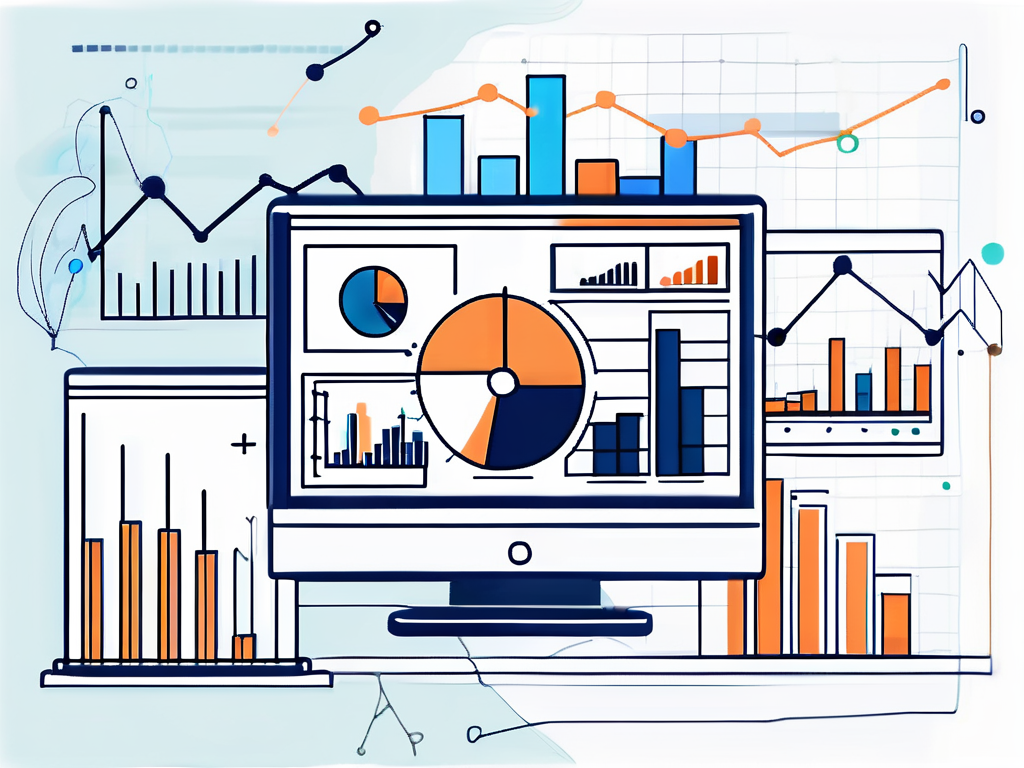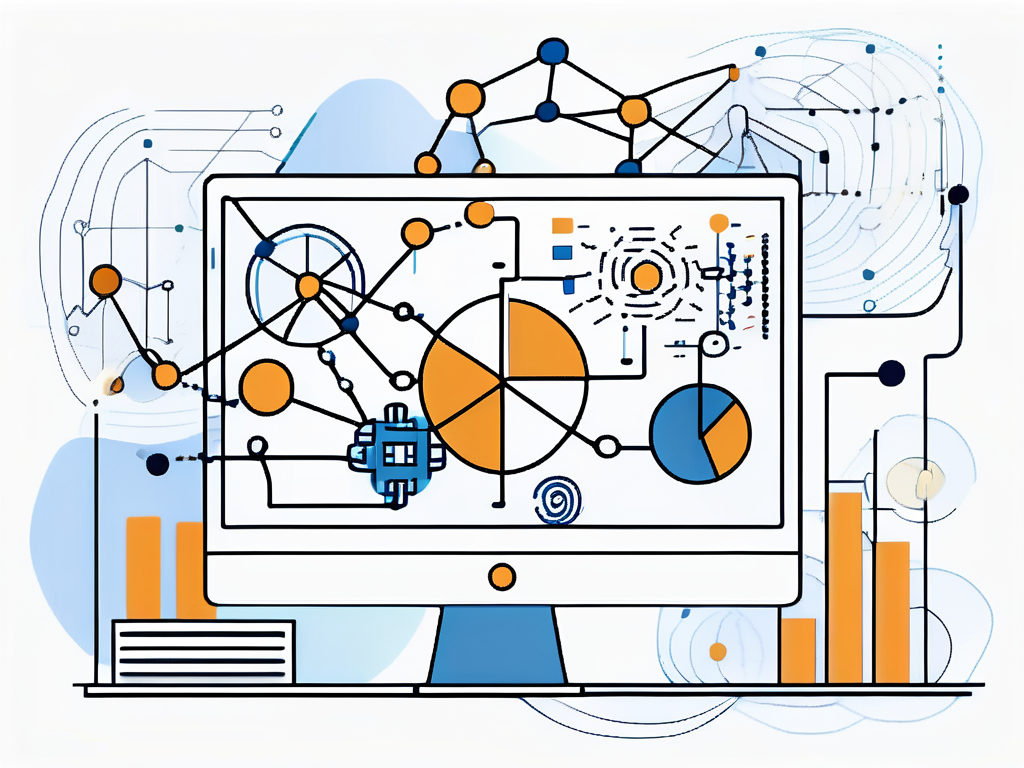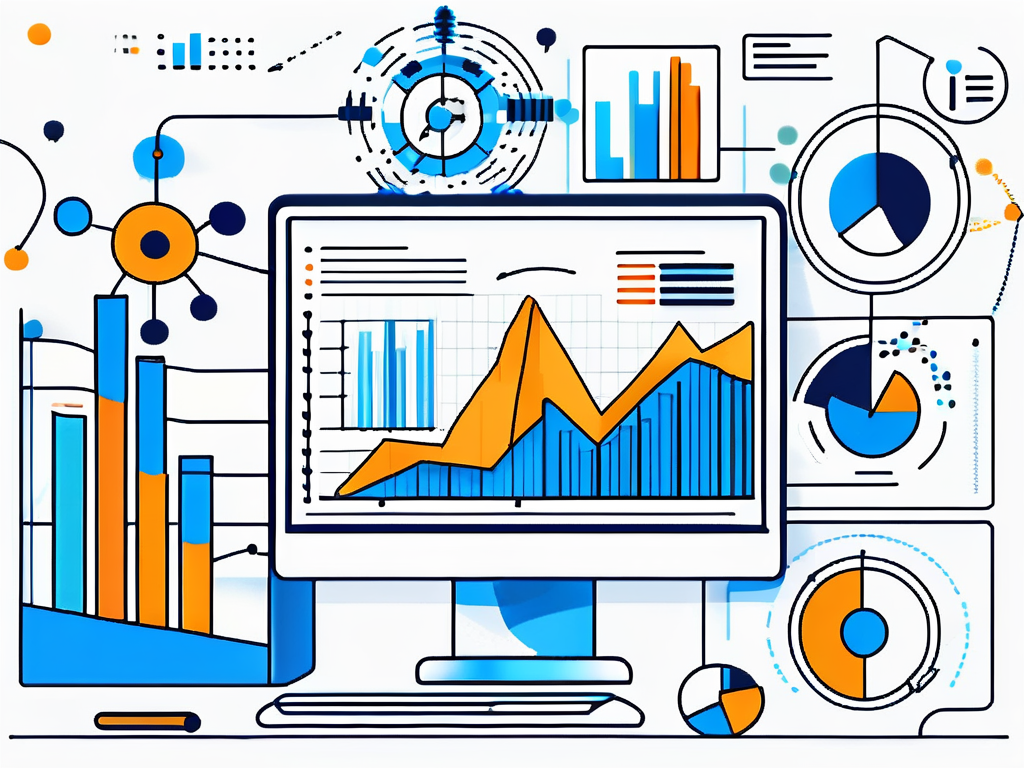In today’s rapidly evolving business landscape, the role of data science and business analytics has become increasingly crucial. As organizations strive to gain a competitive edge, they are turning to these disciplines to extract valuable insights and drive informed decision-making. Understanding the impact and potential of data science and business analytics is essential for thriving in the modern business environment.
Understanding Data Science and Business Analytics
Key Concepts in Data Science
Data science encompasses a range of techniques and methodologies used to analyze and interpret vast amounts of data. It involves extracting actionable insights, patterns, and trends from complex datasets to solve problems and make informed business decisions. Key concepts in data science include data preprocessing, exploratory data analysis, machine learning, and data visualization.
Data preprocessing is a crucial step in data science where raw data is transformed into a clean and organized format suitable for analysis. This process involves handling missing values, removing duplicates, and standardizing data to ensure accuracy and consistency in the analysis. Exploratory data analysis is another essential concept in data science, where analysts use statistical techniques and visualizations to understand the underlying patterns and relationships within the data before applying more advanced modeling techniques.
The Role of Business Analytics in Today’s Enterprises
Business analytics focuses on using data to drive business value. It involves applying statistical analysis, predictive modeling, and optimization techniques to quantify and measure business performance. Business analytics enables organizations to identify opportunities, optimize operations, and make data-driven decisions that can lead to improved efficiency, profitability, and growth.
Predictive modeling is a key component of business analytics that uses historical data to forecast future trends and outcomes. By leveraging algorithms and statistical models, organizations can anticipate customer behavior, market trends, and potential risks, allowing them to proactively strategize and adapt to changing business conditions. Optimization techniques in business analytics help organizations streamline processes, allocate resources efficiently, and maximize performance by finding the best possible solutions to complex business problems.
The Intersection of Data Science and Business Analytics
How Data Science Complements Business Analytics
Data science and business analytics are complementary disciplines that synergize to unlock a wealth of insights. Data science provides the foundation for analytics, enabling organizations to extract meaningful information from raw data. By leveraging advanced algorithms and machine learning techniques, data science enhances the accuracy and predictive power of business analytics models.

Moreover, data science plays a crucial role in identifying trends and patterns that may not be immediately apparent in the data. This deeper level of analysis allows businesses to uncover hidden opportunities and potential risks, leading to more informed decision-making and strategic planning.
The Synergy between Data Science and Business Analytics
Together, data science and business analytics empower organizations to make informed decisions and optimize business processes. Data science explores the underlying patterns and relationships within data, while business analytics provides the tools to measure, track, and optimize business performance based on these insights. The synergy between these disciplines allows organizations to gain a competitive advantage through data-driven decision-making.
Furthermore, the collaboration between data science and business analytics fosters a culture of continuous improvement within organizations. By constantly analyzing and refining data models, businesses can adapt to changing market dynamics and consumer behavior, ensuring long-term success and sustainability in a rapidly evolving business landscape.
The Influence of Data Science and Business Analytics on Decision Making
Data-Driven Decision Making in Modern Business
Data science and business analytics have revolutionized decision-making processes in modern business. Instead of relying solely on intuition or past experience, organizations now have access to vast amounts of data that can inform and guide their decision-making. Data-driven decision-making allows businesses to uncover hidden patterns and insights, mitigate risks, and identify opportunities for growth and innovation.

Moreover, the integration of artificial intelligence and machine learning algorithms in data analytics has further enhanced the decision-making capabilities of businesses. These technologies can analyze complex datasets at a speed and scale that surpass human capabilities, providing more accurate and reliable insights for strategic decision-making.
Predictive Analysis and Strategic Planning
Predictive analysis, a key component of data science and business analytics, enables organizations to forecast future outcomes and trends based on historical data. This helps businesses develop strategic plans and make proactive decisions. By leveraging predictive models, organizations can anticipate market trends, optimize resource allocation, and identify potential risks or bottlenecks.
Furthermore, the use of prescriptive analytics in conjunction with predictive analysis empowers businesses to not only predict future outcomes but also recommend the best course of action to achieve desired results. This proactive approach to decision-making enables organizations to stay ahead of the competition and adapt quickly to changing market dynamics.
The Role of Data Science and Business Analytics in Marketing
Personalization and Customer Segmentation
Data science and business analytics play a pivotal role in modern marketing strategies. Through data analysis, organizations can gain insights into customer behavior, preferences, and needs, enabling personalized marketing campaigns. By segmenting customers based on their attributes and behaviors, businesses can tailor their offerings, improve customer satisfaction, and enhance marketing effectiveness.

Moreover, the use of data science and business analytics in marketing goes beyond just understanding customer behavior. It also involves analyzing market trends, competitor strategies, and industry dynamics to stay ahead of the curve. By leveraging advanced analytics tools, organizations can identify emerging opportunities, mitigate risks, and make data-driven decisions to drive business growth.
Predictive Analytics in Marketing Strategy
Predictive analytics enables businesses to forecast customer behavior and predict future trends, allowing them to optimize marketing efforts. By analyzing historical data and incorporating external factors, organizations can identify patterns, detect anomalies, and make predictions about customer responses to marketing initiatives. This empowers marketers to allocate resources effectively, target the right audience, and deliver personalized experiences.
Furthermore, predictive analytics can also help in pricing optimization, demand forecasting, and product development. By leveraging predictive models, organizations can anticipate market demands, adjust pricing strategies in real-time, and launch products that resonate with customer preferences. This proactive approach based on data-driven insights can give businesses a competitive edge and drive sustainable growth in today’s dynamic market landscape.
The Impact on Operational Efficiency
Streamlining Business Processes with Data Science
Data science and business analytics have the potential to streamline and optimize business processes. By analyzing operational data, organizations can identify inefficiencies, bottlenecks, and areas for improvement. Applying data science techniques such as process mining and optimization algorithms enables businesses to automate and optimize workflows, leading to increased operational efficiency and reduced costs.
One key aspect of utilizing data science in streamlining business processes is the ability to predict future trends and outcomes based on historical data analysis. By leveraging predictive analytics, organizations can anticipate potential issues or opportunities in their operations, allowing for proactive decision-making and strategic planning. This forward-looking approach not only enhances operational efficiency but also helps businesses stay ahead of the curve in a rapidly evolving market landscape.
Enhancing Productivity through Business Analytics
Business analytics empowers organizations to measure and monitor productivity, helping them identify areas for improvement and optimize resource allocation. By analyzing key performance indicators (KPIs) and performance metrics, businesses can gain insights into operational efficiency, staff productivity, and cost effectiveness. Through data-driven decision-making, organizations can optimize their operations, streamline workflows, and boost overall productivity.
Furthermore, the integration of advanced analytics tools, such as machine learning algorithms and artificial intelligence, can take productivity enhancement to the next level. These technologies can provide real-time insights and recommendations, enabling businesses to make data-driven decisions instantaneously and adapt quickly to changing market conditions. By harnessing the power of business analytics, organizations can not only improve productivity but also foster a culture of continuous improvement and innovation within their workforce.
Future Trends in Data Science and Business Analytics
The Rise of Artificial Intelligence in Business Analytics
Artificial Intelligence (AI) is revolutionizing the field of business analytics, promising to unlock even deeper insights and automation capabilities. AI-powered analytics systems can analyze vast amounts of data, detect patterns, and make intelligent recommendations. As AI continues to advance, organizations will be able to leverage its capabilities to uncover new opportunities, optimize operations, and drive innovation.
The Future of Data Science in Business Operations
Data science will continue to play a vital role in shaping the future of business operations. As organizations generate more and more data, the need for data science expertise will increase. From predictive analytics and machine learning to natural language processing and advanced data visualization, data science will enable organizations to extract actionable insights, gain a competitive advantage, and drive efficient and effective business operations.
But what specific areas within business operations will data science impact the most? Let’s take a closer look.
One area that data science is poised to transform is supply chain management. By analyzing historical data, current market trends, and external factors such as weather patterns and geopolitical events, data scientists can develop accurate demand forecasting models. These models can help organizations optimize their inventory levels, reduce stockouts, and improve overall supply chain efficiency.
Another area where data science can make a significant impact is customer relationship management (CRM). By analyzing customer data, such as purchase history, browsing behavior, and social media interactions, data scientists can identify patterns and trends that can help organizations personalize their marketing initiatives. This level of personalization can lead to higher customer satisfaction, increased customer loyalty, and ultimately, improved business performance.
Furthermore, data science can revolutionize the field of risk management. By analyzing historical data and using advanced machine learning algorithms, data scientists can develop models that can predict and mitigate potential risks. These models can help organizations make more informed decisions, minimize losses, and ensure business continuity.
In conclusion, data science and business analytics have a profound impact on modern business operations. They enable organizations to make informed decisions, optimize processes, personalize marketing initiatives, and enhance operational efficiency. As technology continues to evolve, data science and business analytics will become indispensable tools for organizations striving to remain competitive in an increasingly data-driven world. Stay ahead by embracing these disciplines and leveraging their power to transform your business.

Leave a Reply